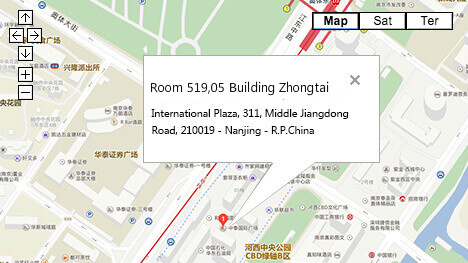Pins recall alert published by the United States Consumer Product Safety Commission ( CPSC) and…
6 ways Chinese suppliers can cheat importers
BY RENAUD ANJORAN
This is the second part of the presentation I gave a group of Chinese suppliers. The first part, about the initial sourcing phase, is here.
I made a list of the most common ways foreign buyers are cheated in China. My message was, basically: “When a buyer feels cheated, he will try hard to find another supplier. Be very careful.”
1. Price increases after a deposit is transferred
The supplier quotes a price, gets an order and a cash deposit, and then tell the buyer the price has increased. Usually a reason is invoked (materials just got more expensive, the product takes longer than expected to produce…).
And, if the buyer asks for reimbursement of his deposit, it is denied because “it was already used for purchasing the materials for your production”.
It is perceived as very dishonest. Sure, quotation mistakes happen. But, when costs are under-evaluated, it should be at the supplier’s expense (just like the opposite is at the supplier’s benefit).
My advice to suppliers is to ask for the deposit “to pay a cash advance to material suppliers, and to ensure prices don’t go up”. And then, never ever increase prices after a deposit is wired — except if the buyer changes some requirements.
2. Price increases from one order to the next, without relation to production cost increases
Let’s say the RMB/USD rate suddenly raises by 20%. Importers will not be shocked if you raise your prices (expressed in USD) for future orders.
Now, let’s say the product in question is made out of plastic, and oil prices suddenly go up 20%. If the supplier increases the final product by 20%, he is actually widening his profit margin. The oil cost is well below 100% of his total production cost, let alone his selling price.
In most cases, suppliers simply say “material costs go up, and labor costs go up, and the exchange rate goes up, so the new price is XX USD”. They do not want to give more data that could allow the buyer to challenge their calculations.
Importers see this lack of transparency with great suspicion. It is not as bad as a price increase after a deposit is received, but it can make a purchaser feel cheated.
Here is my advice to suppliers:
- Back it up with objective data.
- Don’t announce it once the buyer tells you a new order is coming up. Send revised prices every month, for example.
- Offer alternative solutions (e.g. substituting a cheaper material) in case the new price is not acceptable.
3. Lack of reliability: late deliveries, inconsistent communication…
Here are a few manifestations of poor reliability that are very upsetting to buyers:
- Shipment delays announced at the last minute, even though production managers could see it coming 2 or 3 weeks before.
- Consistent over-optimism, which means consistent disappointment on the buyer’s side.
- Lack of respect of contracts in general.
My advice to suppliers is to keep the customer updated along the production cycle. Share information quickly if there are problems, and show that you are hard at work trying to fix them.
4. Inability/unwillingness to reach the desired quality standard
Some importers are flexible with quality. Give them a discount when you mess up, and the business relationship is maintained.
Others are not (if quality is below a certain standard, products CANNOT BE SOLD AT ALL in their distribution channel).
My advice to suppliers is to evaluate each buyer’s quality standard. Sometimes it is obvious: “we sell these parts to Honda” or “it will be distributed as medical supplies in US hospitals” really means “if you mess up, we won’t take the goods”.
5. Non-respect of IP rights
For example, an importer asks two Chinese manufacturers to develop a new design. But only one gets the order. Here are two ways this can go wrong:
- The manufacturer that gets the order might try to produce the same design and sell it to other customers.
- The other manufacturer feels that he can do what he wants with the design. Since he did the hard work of developing prototypes, he will try to make money out of them through sales to other customers.
These attitudes are perceived as very dishonest by buyers. In case famous brands are counterfeited this way, there are many risks — including for the supplier, as Steve Dickinson from Harris & Moure explained to the same group of suppliers just before it was my turn to speak.
My advice to suppliers is to respect your customers’ intellectual property rights. Not respecting them is like stealing money in someone else’s wallet.
Now, some importers are more accommodating. Sometimes, a European buyer doesn’t mind if you sell the same designs outside of Europe. If that’s necessary to make the supplier happy with small orders at a low price, it might be acceptable to the buyer. But be open about it!
6. Lack of transparency
The two most frequent cases where lack of transparency hurts the importer are as follows:
- Subcontracting production in a small workshop in order to cut costs (and without regard to quality requirements);
- Changing a component, a packaging accessory, or a process step.
At least 95% of the time, the importer is not informed.
It is perceived as dishonest if discovered after the fact. But many importers don’t mind, if it is brought up the right way and if explanations are reasonable. For example: “we are very full, so we need to place production in another workshop if you really need us to respect this shipment date”.
My advice to suppliers is to avoid this as much as possible, and to do it for the right reasons (e.g. insufficient capacity, rather than cost savings).
—
I didn’t include outright scams (when the supplier stops communicating after a deposit is wired) in this list. I focused on what can go wrong when a business relationship is already in place.
What do you think?
Article Source: https://qualityinspection.org/china-cheat-importers/


This Post Has 0 Comments